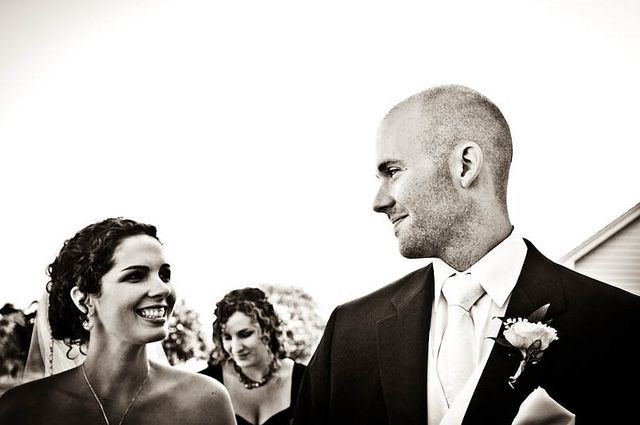Happy Wife, Happy Life? Husband’s Satisfaction Found Less Important For Marital Stability

It’s a morsel of manly wisdom that gets passed from husband to husband, usually with a cold drink or pair of barbecue tongs in hand: A happy wife is a happy life. Marriage, the platitude assumes, isn’t a two-way street of communication and compassion. It’s keeping her flame from igniting into a two-alarmer.
A new study suggests the credo isn’t just a rule of thumb; it may be a well-founded social dynamic. Researchers from Rutgers University and the University of Michigan found no matter how happy or unhappy men were with their marriage, the happier wives were with the marriage, the happier men were in general. Given the extent to which the findings involve caring for sick spouses in old age, researchers argue marriage quality deserves attention from both partners.
As you might expect, “for both spouses being in a better-rated marriage was linked to greater life satisfaction and happiness,” said Rutgers sociologist Deborah Carr in a statement. However, as Carr also points out, it just so happens men are kind of ambivalent when it comes to what’s going on in their own lives. “Men tend to be less vocal about their relationships,” she said. “And their level of marital unhappiness might not be translated to their wives.”
Carr and her co-researcher, Vicki Freedman, a research professor at the University of Michigan Institute for Social Research, gathered data on 394 older couples who were part of a national study of income, health, and disability in 2009. At least one spouse from each pair was over the age of 60, and, on average, couples had been married for 39 years.
Carr and Freedman asked participants things like how they felt about their marriage, how often their spouse argued with them, how much they felt their voice was heard, and whether their spouse got on their nerves. Each participant kept a detailed diary of how happy they were in the previous 24 hours while the couple did things like grocery shopping, watching TV, or cleaning the house.
One of the things that stood out to Carr and Freedman was the difference in attitudes depending on whether wives or husbands got sick. Women, for example, were quick to care for their ailing husband, and their happiness measures went down. But men were no less happy when their wives were sick. For the researchers, this signaled a fundamental gap in how each gender approached empathy.
We know that when a partner is sick it is the wife that often does the caregiving which can be a stressful experience,” Carr said. “But often when a woman gets sick it is not her husband she relies on but her daughter.”
The study comes with some natural limits. Carr and Freedman didn’t set out to make any claims regarding younger couples, who may adopt more egalitarian roles in the home. Older couples may share equal responsibility in cleaning the toilet or washing the grime off the bath tub, but differ in how they communicate their emotions. Younger generations are becoming less comfortable with the idea of sole breadwinners sitting out household duties. Instead, they cozy up to the idea that everything is split 50/50, right down to personal happiness.
Cultivating this sense of reciprocity early is important, Carr says, because when it comes time for a partner to pick up the slack — say, when a husband or wife falls ill — couples will want that skill to be a strength. “The quality of a marriage is important because it provides a buffer against the health-depleting effects of later life stressors,” Carr said, “and helps couples manage difficult decisions regarding health and medical decision making.”
Source: Carr D, Freedman V, Cornman J, Schwarz N. Happy Marriage, Happy Life? Marital Quality and Subjective Well-being in Later Life. Journal of Marriage and Family. 2014.



























